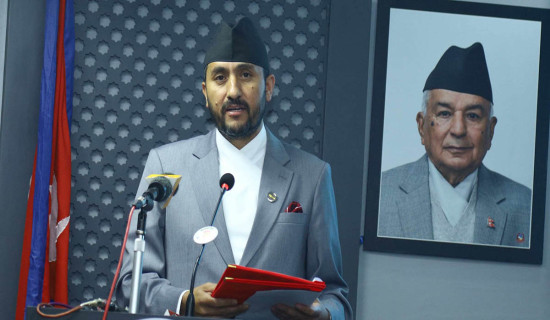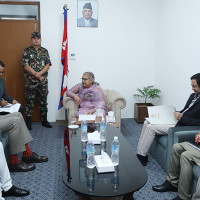- Thursday, 30 October 2025
RTI For Good Governance
Right to Information (RTI) is considered a crucial component in a democratic set-up. RTI em-powers citizens to oversee a range of activities, including the spending of taxpayers' money that directly impact their lives. With RTI instruments in place, the people oblige the government to be accountable and transparent, which enables to curb corruption and promote good governance. RTI defends the people's right to know the decisions and activities of the government bodies, thereby strengthening the rule of law and democratic order. With the democratic system in place, the government has enhanced people's participation in the decision-making process and provided easy access to public goods and services.
Successive governments have taken a series of steps to institutionalise RTI through the formula-tion of laws and necessary mechanisms. Article 27 of the constitution has spelt out the provision of RTI, stipulating that every citizen shall have the right to demand and receive information on any matter of his or her interest or public importance. Under this constitutional arrangement, the Right to Information Act, 2007 was enacted. As an autonomous body, the National Information Commission (NIC) was established to protect, promote and implement RTI. It is responsible for monitoring the implementation of Right to Information laws and issuing necessary directives to uphold information rights.
Owing to the RTI provisions, every ministry has appointed a spokesperson, who furnishes infor-mation on matters of public importance. Similarly, the Minister for Communication and Infor-mation Technology acts as the spokesperson of the government. Public offices have information officers to provide information to the people who approach them to inquire about the govern-ment's decisions, policies and their implementations.
Nepal has witnessed scores of political and social movements. Democracy was hijacked and re-stored at least three times. Despite all authoritarian penchants of rulers in the past, democracy has taken root. Public institutions have been expanded and strengthened. The national charter has enshrined around 31 fundamental rights of citizens and RTI functions as a viable tool to realise these rights. Press freedom, independent judiciary and a host of rights-related institutions have further bolstered RTI. The government offices should provide timely and accurate information to the public so that they can take informed decisions regarding education, health and employ-ment, among others. Until and unless the government ensures citizens' access to information of public entities, institutional development of democracy cannot be possible.
Meanwhile, addressing a programme organised on the occasion of the 18th anniversary of the NIC at the Office of the President in Sheetal Niwas on Monday, President Ram Chandra Paudel said that there was a need to increase people's oversight of state investment and make the gov-ernance system transparent. Likewise, the Minister for Communications and Information Tech-nology Prithvi Subba Gurung said that policy-based and structural reforms were in place to en-sure citizens' access to RTI and promote it to reaffirm the relevance of the federal democratic republic.
However, a lack of public awareness, inadequate record-keeping and weak enforcement mecha-nisms hinder people's access to RTI. We have robust laws, but the implementation aspect is poor. The people should also be aware of the RTI provisions so as to enable them to exercise their rights. Democracy can be consolidated, and service delivery can be effective if the people are well informed and participate in the decision-making process.






_gnvgk1o-original-thumb.jpg)
-square-thumb.jpg)
-square-thumb.jpg)








